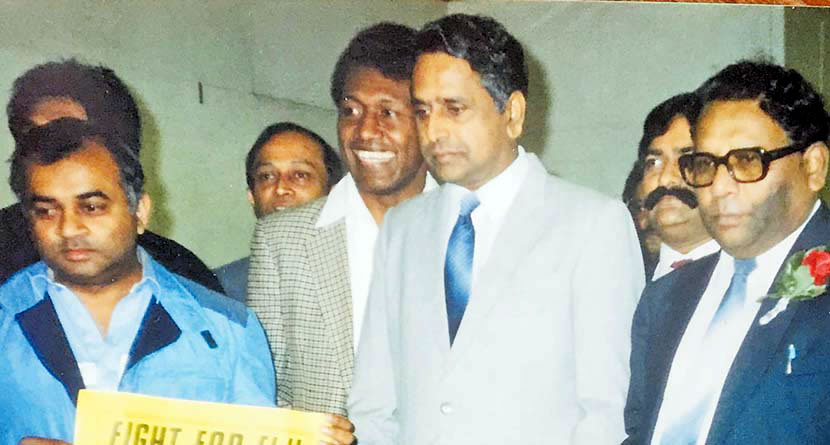The House of Representatives in Fiji voted to abolish hanging and made life imprisonment the only punishment for murder in 1979, and this change in the law was published in The Fiji Times on March 1 of that year.
About 36 of the 51 members of the House were present for the death penalty vote just before noon.
Seven had urged the retention of the gallows, but there was only one audible “no” from Alliance MP S Reddy when the Speaker asked members to express dissent or support for a Bill to amend the Penal Code and abolish hanging.
The Bill originally proposed that hanging should be the only punishment for murder.
But an amendment from the Minister for Labour, Ratu David Toganivalu, moved in his absence by Minister for Agriculture Jonati Mavoa, substituted life imprisonment as the only penalty.
Prime Minister Ratu Sir Kamisese Mara and the Leader of Opposition, Jai Ram Reddy, were among those supporting abolition.
But recalling that he had once supported hanging, Ratu Sir Kamisese said that at the time he would have done the hangman’s job himself, if required. “I usually do what I say,” he said.
Speaking against hanging, Mr Reddy said the act itself was “grotesque”, “repulsive” and “true cold-blooded killing”.
He said there was “not a share of evidence that it served any useful social service”.
“In an interview earlier with the Controller of Prisons, Wally Smith, he had made comments that leave no doubt as to the feeling of those who will be expected to do this dreadful act,” he said.
Mr Reddy said as a prosecutor, he had prosecuted in 40 or 50 murder cases, and in private practice had defended murderers.
“The one thing that struck me the most throughout my career is the thin wedge that often exists between a conviction and an acquittal and the enormous scope for error that exists.”
He said the law was an imperfect system administered by imperfect men who heard evidence from people who had a faulty recollection of facts, who were biased and who had a motive to lie.
Government backbencher K. S Reddy said to abolish hanging would be “disastrous” and would alarm the public.
Of 27 MPs who spoke in the debate, 18 supported abolition, seven supported hanging, and two did not commit themselves.
Supporters of abolition on this motion were: the Prime Minister (Ratu Mara), the Leader of Opposition, Minister for Youth Vivekanand Sharma, Minister for Health Ted Beddoes and P. K. Bhindi.
Eqbal Mohammed was wrongly listed in a report as supporting abolition. But earlier in the week in Parliament he spoke in favour of keeping capital punishment.
Opposition member R. S Gounder was inadvertently omitted from a list of members who supported hanging.


